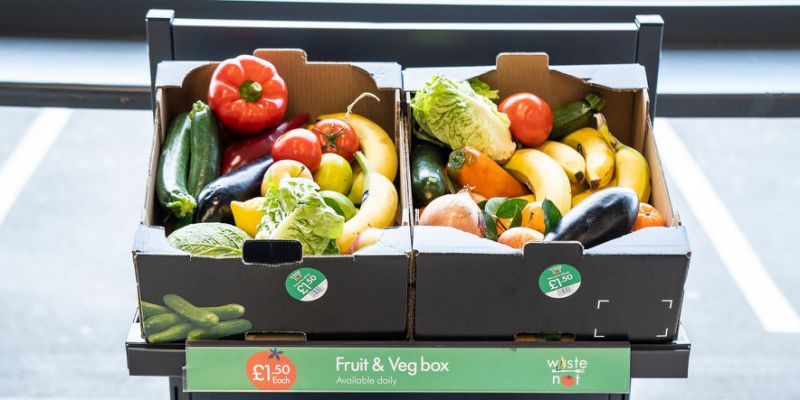Joining Aldi, Asda, Morrisons and Tesco in their pursuit to stop wasting ‘wonky veg’, discounter Lidl has created a line of bargain boxes containing fruit and vegetables which are ‘slightly damaged, discoloured or deteriorated but are still perfectly good to eat’.
Naming the range Too Good to Waste, the supermarket carried out a ‘very fruitful trial’ in August 2018, during which it reports selling 50,000 boxes and preventing 250 tonnes of fresh produce from ending up in waste disposal.
The veg boxes are now available in all stores across England, Wales and Scotland. Coming in at £1.50, each box contains approximately 5kg of fruit and veg bearing perceived imperfections, selected daily from shelves in-store by a dedicated team of Freshness Specialists.
The range is available to customers from opening until midday, after which any boxes which have not been purchased are handed out to ‘local good causes’ through Lidl’s national surplus food redistribution programme, Feed it Back – an initiative which sees the supermarket partnering with social platform Neighbourly.
Creating the change we need to successfully tackle food waste … requires industry-wide commitment and collaboration
The primary aim of the initiative is to help Lidl tackle the food waste generated by its stores, while also helping customers to make further savings on their groceries. Christian Härtnagel, CEO of Lidl GB, calls the scheme a ‘great example’ of how the discounter can utilize its ‘lean and efficient business model’ to fulfil its mission to make ‘good, healthy food more affordable and accessible, whilst acting sustainably’.
In a statement on its website Lidl calls 60% of waste ‘avoidable’. “The latest data estimates that in the UK, ten million tonnes of food is wasted from the time it leaves the farm to being consumed … We believe this is simply unacceptable.
“Creating the change we need to successfully tackle food waste in the long term isn’t easy and requires industry-wide commitment and collaboration. That’s why in 2016 we joined retailers, manufacturers, local authorities and others across the industry in becoming a signatory to WRAP’s Courtauld Commitment 2025 to work collectively to reduce food and drink waste by 20%.”











